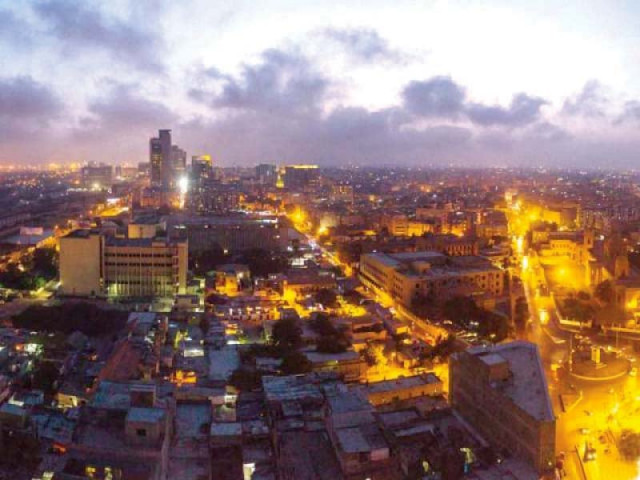Tariffs reforms: one step forward, two steps back?
Country has failed to diversify its produce as tariff structure restricts innovation, efficiency

Three years have passed since the Pakistan Tehreek-e-Insaf (PTI) government came to power with the agenda of reforms to remove structural inefficiencies in the economy and put the country on a growth trajectory.
Strengthening trade, revitalising industries and boosting exports are part of PTI manifesto.
Customs tariffs, if effectively employed (or perhaps not used at all), can help in import of innovation, leading to economic growth, whereas their regressive use could erode competitiveness, cause de-industrialisation and push down exports. Clearly, Pakistan’s is a case of latter.
“Make in Pakistan” has been used as a slogan both by businesses and government agencies to gain support and promulgate policies, but the country has failed to diversify its produce because the contemporary tariff structure restricts innovation and efficiency. There is correlation between imports and exports, as the former comprises necessary inputs that will be morphed into value-added commodities for domestic and foreign consumption. But the country is following an import substitution policy, which restricts productive activities, hinders adoption of modern technology, limits competitiveness of domestic industries and creates anti-export bias.
Import substitution is an idea from the 1960s playbook, which has long been shelved, especially in Asian economies, which were later called Asian tigers.
The heart of import substitution-based industrialisation lies in levying protectionist duties and other associated tariff and non-tariff measures. They exponentially increase the value of imports, translate into higher cost of production and deprive manufacturers of necessary capital.
They also diminish the competitiveness of commodities internationally and cause inflation domestically. As a result, Pakistan is in the list of countries having high tariff and non-tariff barriers to trade and its weighted average tariff stood at 12.1%. In contrast, the weighted average tariff of China, Indonesia, Malaysia and even Sri Lanka is 7.5%, 8.1%, 5.7% and 9.3% respectively. Imposition of additional customs duties and regulatory duties makes the gap even wider. In November 2019, a major policy change took place in the form of entrusting the Ministry of Commerce, instead of the Federal Board of Revenue (FBR), the task to determine tariffs. Therefore, a tariff policy board was constituted and the Tariff Policy Centre was established in the National Tariff Commission (NTC) for assistance.
Although NTC was assigned the task to carry out research and formulate proposals in consultation with stakeholders, the Ministry of Finance still played a leading role in the determination of regulatory and other duties imposed during the year.
The PTI government can be credited with the formulation of country’s first National Tariff Policy (NTP), yet implementation of the policy remains to be seen in true sense.
Customs duty on raw material was slashed but on intermediate and final goods it remained unchanged while additional customs duty and regulatory duties were increased, thus making the overall impact insignificant.
The reason behind the myriad duties is the protection of domestic industries from international competition and revenue generation to manage budgetary requirements.
In the framing of country’s trade policy, revenue generation has taken precedence over long-term sustainability and industrial competitiveness, which can be illustrated by the fact that revenue collection at the import stage has stood above 40% of the total FBR collection, ie Rs2,129 billion was collected at the import stage out of total FBR’s collection of Rs4,732 billion in FY21.
On the other hand, continuous provision of protection to industries without realisation of their potential to become internationally competitive has eliminated the incentive to innovate, thereby making them crippled and in need of government support. Subsequently, the transfer of knowledge and technology associated with trade did not happen in the case of Pakistan. NTP envisages reducing complexity in the entire tariff system, but items are frequently moved from one schedule to another through which application of duties remains consistent along with time to time promulgation of SROs, which negates the purpose of creating different tariff slabs, and the implementation has become more intricate.
Moreover, the government has promulgated 43 SROs in the last three years while the PML-N government had promulgated 53 SROs in five years, which created uncertainty and difficulty in the implementation of tariff policy along with making the system more complex.
The application of multiple duties and complexity of the system makes the implementation of policies difficult and leads to the emergence of distortions. It has been globally acknowledged that higher the number and amount of taxes, higher will be the tax avoidance. Similarly, high tariffs have contributed to under-invoicing, mis-declaration of quality and quantity of goods and more importantly smuggling, which is a signal that tariffs are priced too high for customers.
Pakistan’s complex and progressive tariff policy contributes to stagnant exports and requires revision. There are several recommendations:
First, the tariff structure needs simplification through reduction in the number and rates of tariffs. Second, the country needs a comprehensive long-term trade policy to create certainty and provide a road map to businesses, and move away from distortion-creating SROs.
Third, imports translate into exports, therefore, import substitution policy should be rescinded.
Four, tariffs should not be used as a revenue generation tool. Lastly, the protection provided to inefficient industries should be ended to incentivise innovation and adoption of modern technology for higher production and exports.
The writers are affiliated with PRIME, an independent economic policy think tank based in Islamabad
Published in The Express Tribune, October 25th, 2021.
Like Business on Facebook, follow @TribuneBiz on Twitter to stay informed and join in the conversation.



















COMMENTS
Comments are moderated and generally will be posted if they are on-topic and not abusive.
For more information, please see our Comments FAQ